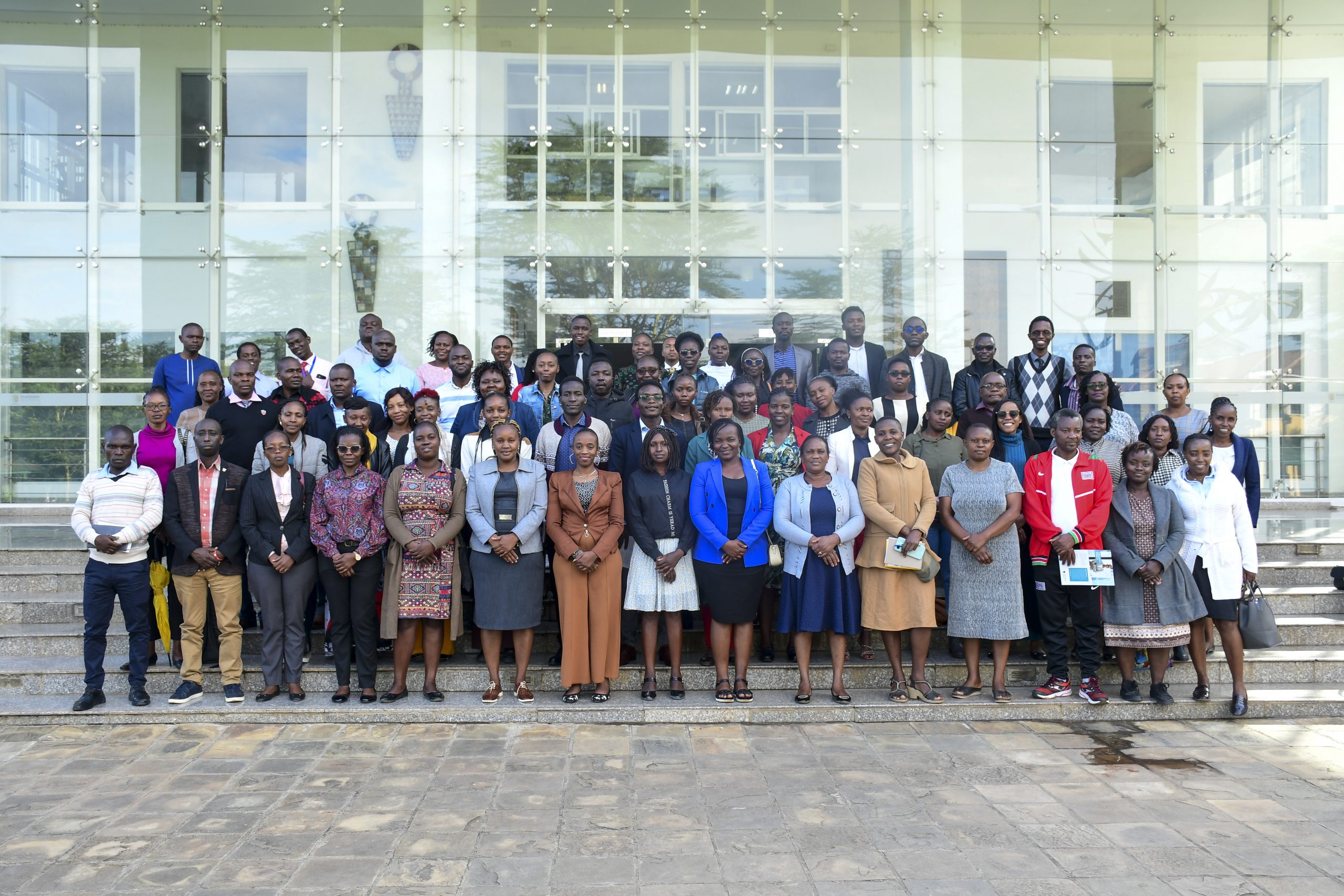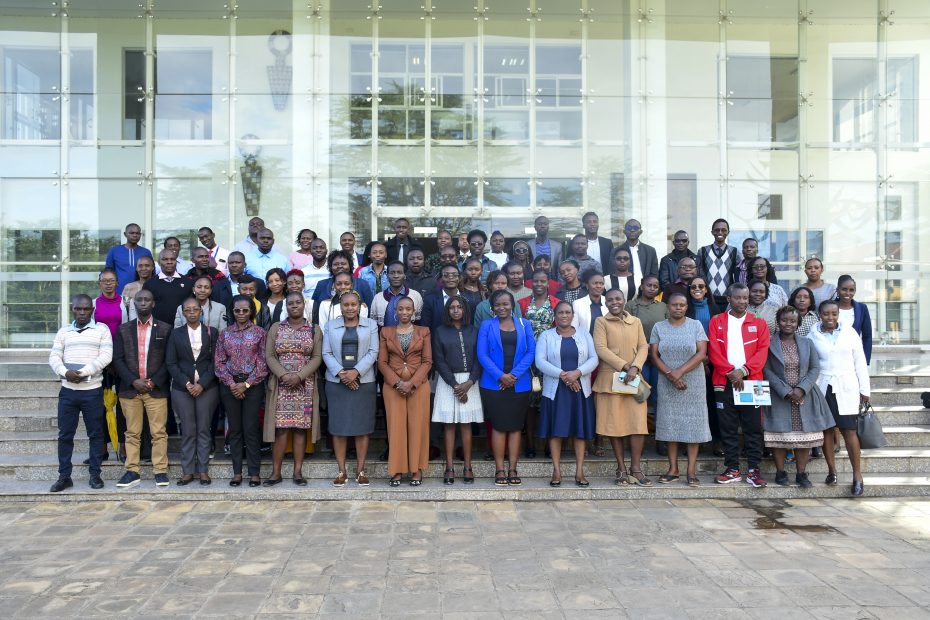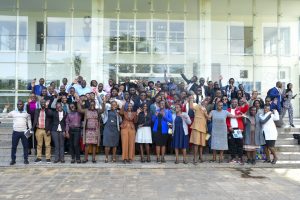Mental Wellbeing

e-Msingi Empowers Teachers, Students, and Parents for Mental Well-being

In our education systems, a silent crisis thrives. One that report cards and exam scores cannot measure. Behind the classroom doors, teachers battle burnout, students struggle with unseen pressures, and parents grapple with how to help. The truth is clear. Academic excellence cannot thrive where mental well-being is neglected.
On April 25th, Strathmore University’s Community Service Centre, through its e-Msingi Programme, tackled the pressing issue of mental health with a workshop dubbed “A Whole-School Approach to Mental Health.” The event brought together psychologists, educators, clergy, and parents, sparking critical conversations, from the alarming rise in teacher burnout to the widening generational gaps that leave many students feeling unseen and unheard.

Panel 1: Teacher Mental Health, from left: Nancy Karanja, Barbra Mwangi, Dr. Stephen Macharia, Mrs Dorcas Ngenoh, Mrs Georgina King’ori ,Mr. Francis Kitiva, Jacinta Nabangi, Faith Masambia and Victoria Muema
The first session featured Faith Masambia, a Counselling Psychologist and Lecturer at Kenyatta University. Her presentation painted a sobering picture: many teachers are battling chronic stress, burnout, and emotional exhaustion.

She highlighted a growing concern over the rising cases of substance abuse among teachers, noting that many turn to it as a coping mechanism for the pressures they face. Additionally, she pointed out the persistent stigma surrounding mental health, which often discourages teachers from seeking the support they need. As a result, a significant number of educators are increasingly absent, both physically and mentally, from the classroom, burdened by unresolved mental health challenges.
This session was followed by a panel discussion moderated by Dr. Stephen Macharia, a lecturer at the School of Humanities and Social Sciences, which reiterated the Teacher’s Mental Health. The panelists included: Faith Masambia, Mr. Francis Kitiva and Mrs. Georgina King’ori.

Panel 1: Teacher Mental Health, from left: Dr. Stephen Macharia, Mrs Georgina King’ori ,Mr. Francis Kitiva, Jacinta Nabangi, Faith Masambia
Masambia stressed, “Teachers cannot support students’ mental health if their own well-being is compromised.” The panel echoed this sentiment, with Francis Kitiva and Gakunguria, Editor, Kenya Counselling Education, warning that the teaching profession risks losing many educators due to inadequate support and poor working conditions.
Mrs. Georgina King’ori emphasized the importance of mentorship in schools, urging principals to provide regular wellness breaks and flexible scheduling to help teachers decompress.
The session concluded with several powerful takeaways. Participants were reminded that self-care is essential, not a selfish act. Teachers were encouraged to set healthy boundaries, seek support when needed, and reconnect with passions beyond the classroom. Additionally, fostering positive relationships within the workplace was emphasized as a vital buffer against emotional strain.
The second panel, moderated by Juliet Hinga, Communication Manager at Strathmore University Business School, explored how parents and teachers can work together to support students’ mental well-being. Panelists included Florence Ochanda, Stephen Odhiambo, Naureen Ajiambo, Fr. Jude Karuhanga, Stacy Chemutai, and Peter Wanyangi.

Panel 2: Strategies for involvement of parents in addressing students’ mental health needs from left, Dr Alfred Kitawi (e-Msingi director) Victoria Muema ( e-Msingi Psychosocial support lead) Florence Ochanda, Florence Ochanda, Juliet Hinga, Naureen Ajiambo, Stephen Odhiambo, Stacy Chemutai, Peter Wanyangi, Fr. Jude Karuhanga
They emphasized the invisible nature of mental health struggles and encouraged parents to observe, ask, and listen. Creating safe spaces where children feel heard and respected.
Ochanda, a psychologist, challenged attendees to reflect on generational, relationship and communication gaps, asking, “How many of us have read the 2022 Children’s Act?” She highlighted the importance of intentional parenting and relational empathy.
Fr. Karuhanga added a spiritual dimension, encouraging families to rediscover their religious grounding to build emotional resilience. He advocated for a balanced approach that embraces cultural, religious, and medical perspectives.

Florence Ochanda
Among the key strategies shared was the importance of fostering open and empathetic conversations, both at home and in school, to create safe spaces for children to express themselves. Speakers cautioned against self-diagnosis, urging teachers and parents to articulate their concerns and consult professionals for accurate guidance. They also emphasized the need to embrace children unconditionally, even in the face of mistakes, while maintaining consistency in parental involvement to support healthy development.
Catherine Kibunja, Wellness Manager at Strathmore University, presented the university’s Wellness Program, a proactive and structured approach to staff and student mental health. She encouraged school leaders to adapt and implement similar frameworks in their own institutions, highlighting the importance of institutional support in creating healthy, productive communities.

Wellness activity led by Catherine Kibunja, Wellness Manager at Strathmore University
At the tail end of the workshop, the e-Msingi team shared the heart behind the initiative. Why it began, what it has achieved, and where it’s headed. They reminded the audience that E-msingi was born out of a need to create meaningful, value-based educational experiences beyond academics.
Dr. Alfred Kitawi, the Lead e-Msingi, proudly announced that the programme has expanded its impact across four countries. He reaffirmed the team’s commitment to growth and deeper engagement, concluding with a powerful declaration that the program is still #GoingPlacesWithSU
As Mental Health Awareness Month (May) approaches, the workshop was a timely reminder that our schools’ well-being starts with those within them. It called for prioritizing teachers’ mental health, establishing support and mentorship structures, strengthening partnerships between educators and parents, and encouraging open, stigma-free conversations with students around mental health.
“You cannot pour from an empty cup. Take care of yourself so that you can care for others.” Faith Masambia

Article Written by: Teresa Nekesa